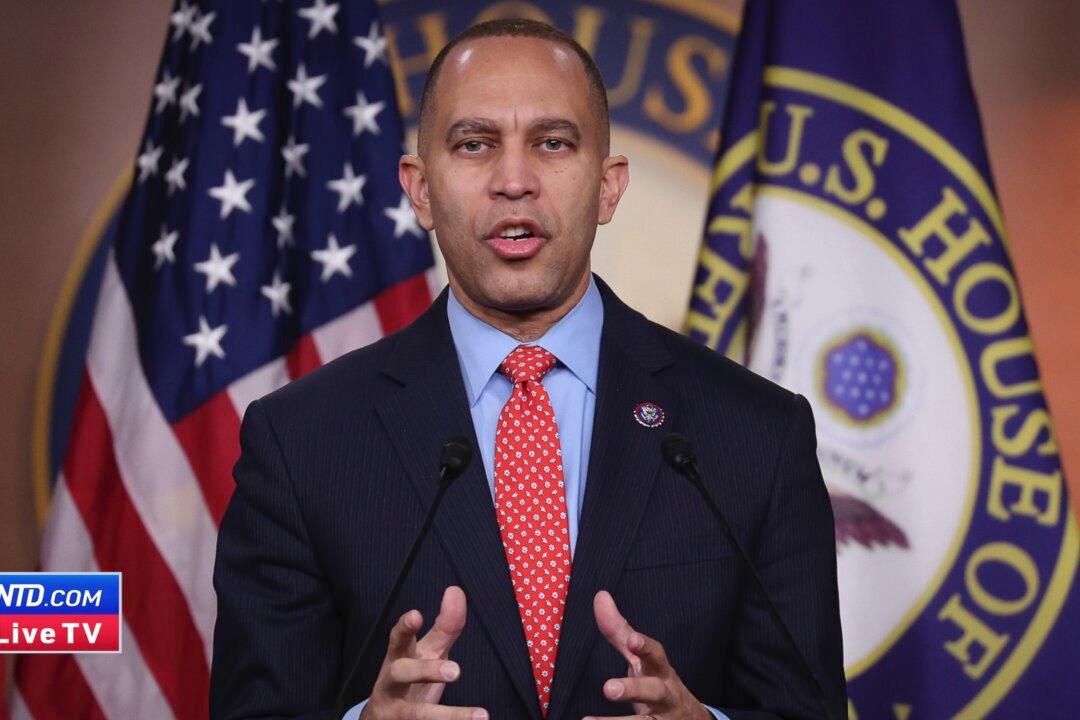During a March 10 press conference about the upcoming “Equal Pay Day,” Democrats railed against the alleged disparity between men’s and women’s wages.
House Minority Leader Hakeem Jeffries (D-N.Y.) led the press conference flanked by current and former female congressional leaders including former Speaker of the House Nancy Pelosi (D-Calif.). The lawmakers used the press conference to push disputed claims about discrepancies in pay between men and women for the same work and called for the passage of their party’s “Paycheck Fairness Act.”





